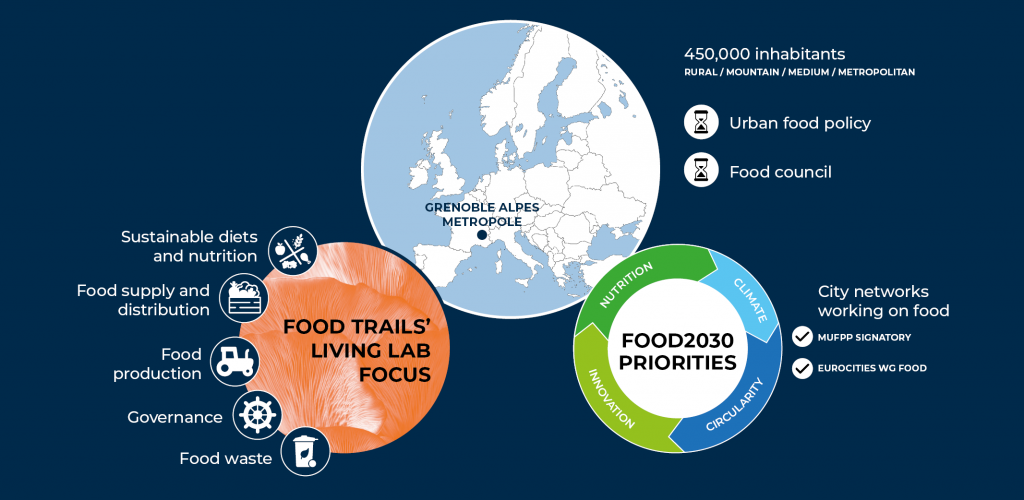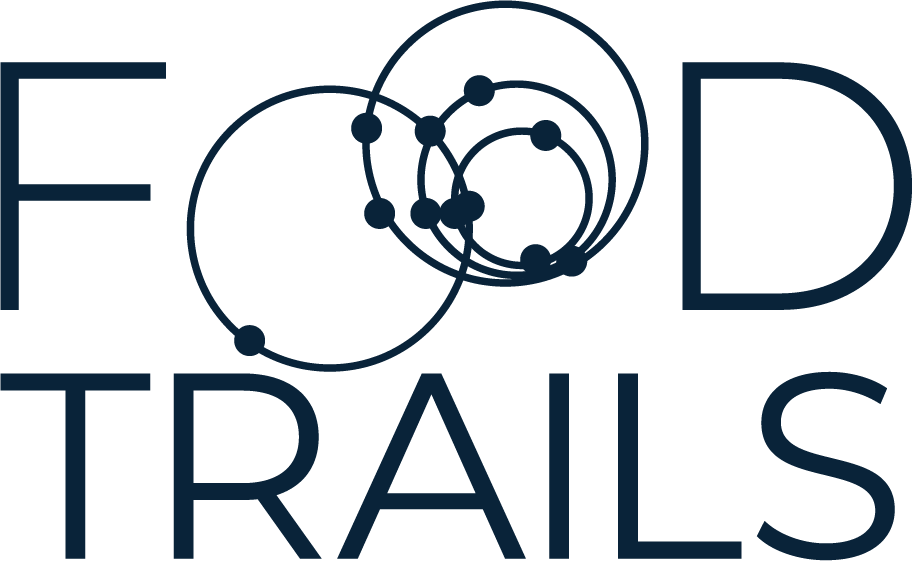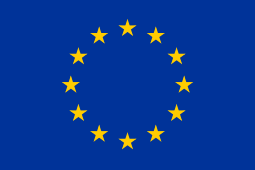
Nestled high in the Alps and bringing together 450,000 inhabitants in 49 urban, rural and alpine municipalities, Grenoble-Alpes Metropole has a unique food system linked to its geography. Around 15% of its mountainous territory is covered by farmable land, and the local government wants to capitalise on it to improve diets, sustainability and create short food chains.
The Metropole has focused its efforts on agriculture with its Metropolitan Agricultural Strategy 2015-2020. This strategy seeks to drive sustainable and quality farming in rural municipalities and link these with other urban areas within the metropole through short supply chains.
Through Food Trails, Grenoble-Alpes Metropole aims to re-territorialise its food system. This means supporting farmers in adapting agriculture and food production to climate change, reducing the environmental impact of local horticulture, ensuring food availability and quality in school canteens and for the most vulnerable, and supporting the evolution of locals’ eating habits.
Concretely, the Living lab will:
1. raise awareness on sustainable Food systems and healthy and sustainable eating habits while developing a city innovation ecosystem around the sustainable food transition;
2. support the change in food quality and food waste management in school canteens by ensuring food availability and quality in school canteens for the most vulnerable at the scale of the Metropole;
3. develop a participatory scheme from a Food and Agriculture Strategy towards a Common Food Policy: the Metropole gathers local stakeholders to discuss collectively ways to stimulate a more sustainable and healthier food system and drastically reduce GHG emissions by 2050, for example, during the Month of food transition.
Read more here.

